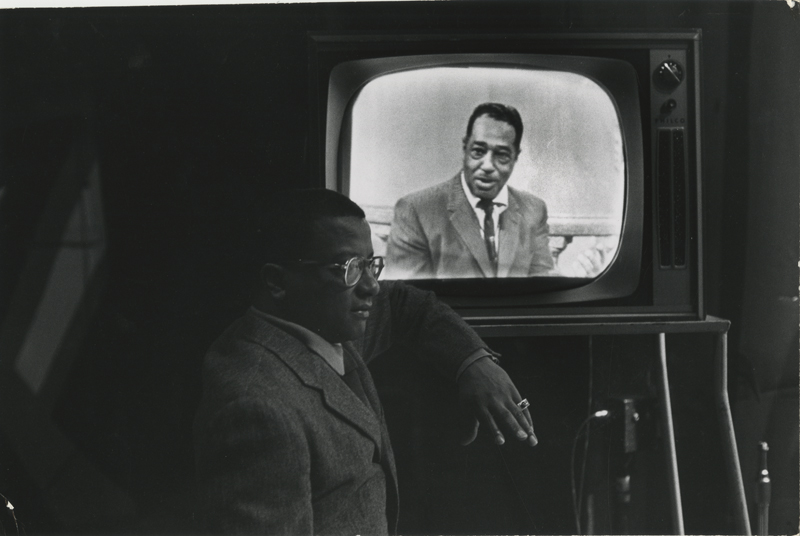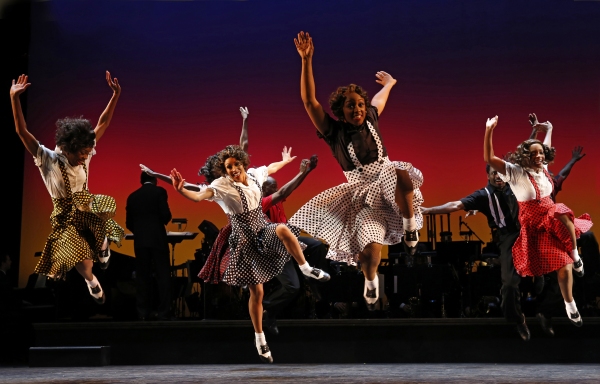 Of making books there is no end, saith the preacher, and much study is a weariness of the flesh. The latter is true, the former less so. I sent in my final corrections to the text of Duke: A Life of Duke Ellington yesterday afternoon. At long last I’m done, and glad to be. For me, all that remains is to help sell the damn thing, and that formidable task doesn’t start until October. I can put Duke out of my mind.
Of making books there is no end, saith the preacher, and much study is a weariness of the flesh. The latter is true, the former less so. I sent in my final corrections to the text of Duke: A Life of Duke Ellington yesterday afternoon. At long last I’m done, and glad to be. For me, all that remains is to help sell the damn thing, and that formidable task doesn’t start until October. I can put Duke out of my mind.
And will I? Probably not. After all, I’ve been thinking about Duke for the past four years, ever since I first got the idea to follow up Pops: A Life of Louis Armstrong with a biography of Ellington. It isn’t easy to put so protracted and demanding a task behind you. In my experience, the only thing that works at all well is to replace it with a new, equally demanding task.
Fortunately, I have two on my plate. The first one you know about: The King’s Man, my third operatic collaboration with Paul Moravec, opens in Louisville on October 11, six days before Duke is published, and we’re still hard at work on it. The second one will be news to you: I’ve written a play about a small-town lynching called Breaking and Entering. Shakespeare & Company of Lenox, Massachusetts, where Satchmo at the Waldorf was produced last August, will give it a staged reading in August. Factor in the routine demands of my day job at The Wall Street Journal, and it seems a fairly safe bet that I won’t have time to do much thinking about Duke Ellington between now and mid-October.
That, at any rate, is the way it’s supposed to be. But the great engine of publicity (if I may lift a line from Duke) has already started to rumble, hiss, and spew out copy, and I expect I’ll be reminded at regular intervals throughout the summer that I’ve got a book coming out in the fall. Two days ago, for example, Publishers Weekly printed a top-ten list of fall music books, and Duke was one of them. I’m in good company, for the PW list also includes new biographies of Bach, Beethoven, and Johnny Cash, plus memoirs by Donald Fagen, Graham Nash, and Linda Ronstadt. Duke is the only book about jazz that made the list.
 There will, of course, be bad news–there always is–but I’m hopeful that Duke will be received with at least some of the same enthusiasm that greeted Pops in 2009. I doubt it’ll hurt that After Midnight, an all-Ellington revue, will be opening on Broadway two weeks after Duke hits the book stores, an exceedingly fortuitous piece of timing.
There will, of course, be bad news–there always is–but I’m hopeful that Duke will be received with at least some of the same enthusiasm that greeted Pops in 2009. I doubt it’ll hurt that After Midnight, an all-Ellington revue, will be opening on Broadway two weeks after Duke hits the book stores, an exceedingly fortuitous piece of timing.
In the meantime, I’m putting my feet up and doing my best to unwind. Breaking and Entering and The King’s Man will be back on my mind tomorrow, with Duke lurking stealthily in the background. Today, though, I plan to rest. I’ve earned it.
While I take it easy, you might be amused to read the dust-jacket copy for Duke, on which I signed off two days ago. It’ll give you a taste of things to come:
Edward Kennedy “Duke” Ellington was the greatest jazz composer of the twentieth century–and an impenetrably enigmatic personality whom no one, not even his closest friends, claimed to understand. The grandson of a slave, he dropped out of high school to become one of the world’s most famous musicians, a showman of incomparable suavity who was as comfortable in Carnegie Hall as in the nightclubs where he honed his style. He wrote some seventeen hundred compositions, many of which, like “Mood Indigo” and “Sophisticated Lady,” remain beloved standards, and sought inspiration in an endless string of transient lovers, always hiding his inner self behind a smiling mask of flowery language and ironic charm.
Wall Street Journal critic Terry Teachout, who played jazz bass professionally before becoming a full-time writer, has drawn on unpublished private papers, musical manuscripts, scrapbooks, and transcripts of breathtakingly frank interviews to uncover the facts about the public and private lives of Duke Ellington, placing him in the context of the Harlem Renaissance and examining his influence on 20th-century art and culture. The first full-length Ellington biography in nearly two decades, Duke peels away countless layers of evasion and deception to tell the unvarnished truth about the creative genius who inspired Miles Davis to say, “All the musicians should get together one certain day and get down on their knees and thank Duke.”
And there you have it…for now.
